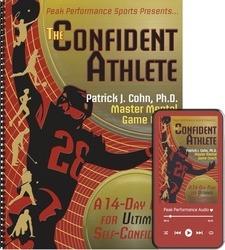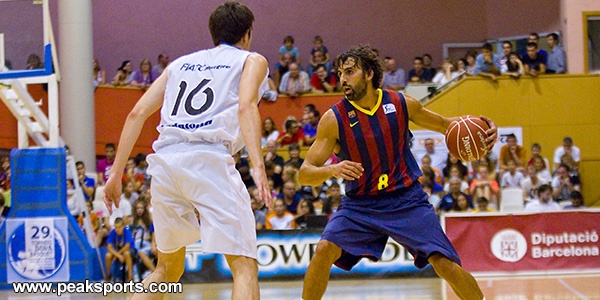How to Perform in Clutch Game-Time Moments
Performing under pressure… Being clutch… Making the big play… Hitting the winning shot…
This is what makes sports exciting for athletes.
When athletes are young and they are playing in their backyards, they dream up scenarios where their last ditch heroic efforts turn the tide and win the game in dramatic fashion.
Yet, when athletes become older, fear sets in and they don’t to take on that role of taking that clutch shot.
Some athletes get swallowed up by the moment and falter under the competitive pressure.
What makes an athlete clutch?
What are the characteristics that separate those athletes who want the game in their hands in the closing moments and those athletes who want to defer to other athletes towards the end of a game?
First of all, being clutch doesn’t mean always making the final shot to win the game or hitting the landing perfectly or striking out the side in the ninth inning.
Being clutch is not backing down from the inevitable pressure that surrounds an athlete when the game is on the line.
Being clutch is feeling the pressure and performing anyway regardless of the possible result.
Being clutch is feeling intensity, but not nerves and the ability to focus and perform up to your ability no matter the game situation.
To better understand the mindset of being clutch, let’s examine the mindset of NBA Portland Trail Blazers All-Star Damian Lillard.
Lillard has averaged 23.1 points per game during his six-year career and roughly 27 points per game in the last two seasons.
Last season, Lillard was named as the most clutch player, receiving the National Basketball Player Association Mr. Clutch award nominated from his fellow players.
In 151 clutch minutes (less than five minutes remaining in the 4th quarter or overtime and neither team ahead by more than five points) Lillard has scored 127 points.
Lillard reflected on what has helped him perform in clutch moments and he pointed to an incident when he was younger that helped cope with the sense of pressure to perform in closing minutes of a game.
LILLARD: “I remember in the eighth grade I had a game winning shot. I think we were down by two. I hit a three-pointer with one second left and I took my jersey off and started celebrating. It was one second left and I got a tech and the other team got two free throws. We ended up losing the game by one and that was the worst thing that could ever happen.”
To put it another way, a loss is the worst that could happen and nothing more.
LILLARD: “I’ve had a lot of moments where something just didn’t go my way at the time that I needed it to in a game. It just made me not fear what the outcome would be… I think it just made me more calm in those situations and it’s just going to be what it’s going to be.”
What helps an athlete perform best in the clutch?
Being more calm.
What helps an athlete to stay calm?
Not worrying about results.
Being calm frees you up to play and to focus like you normally would which increases your ability to perform your best despite the circumstances.
The truth is, you can be clutch if you can let go of what could happen and just play the game with trust in your skills.
How to Perform in Clutch Moments:
First, you need to realize sports are not life-or-death. It’s just a game.
Second, don’t define the moment as clutch and attach significance to the outcome.
Next, you need to know that being clutch doesn’t mean hitting the mark every time but making the attempt to hit the mark.
Fostering a “clutch” mindset is a matter of staying grounded in the moment, minimizing the “fear,” and managing expectations.
Related Sports Psychology Articles
*Subscribe to The Sports Psychology Podcast on iTunes
*Subscribe to The Sports Psychology Podcast on Spotify
Download a free sports psychology report to improve your mental game!
Learn more about our one-on-one mental game coaching.
The Confident Athlete

“The Confident Athlete” consists of 2 audio programs that include 14 days of confidence fueling exercises and a simple to follow workbook that guides you through the 14 days, helps you apply the strategies, and customizes the exercises to your personal needs.
Let me help you put a stop to the confidence leak. You can learn to have greater levels of confidence in competition than you do in practice by identifying the specific ways you undermine your own confidence and how to convert your practice confidence into COMPETITIVE CONFIDENCE.
“The Confident Athlete” is a ground-breaking system to teach you how to think like a champion and have ultimate self-confidence every time you step on the playing field, court, track, or course. The confident athletes was developed for any athlete – junior to professional –that wants to gain confidence. However, coaches and sports parents can learn how to teach others to perform with ultimate confidence. Use my program if you want to bust a slump or just wanting higher or more consistent levels of self-confidence.

